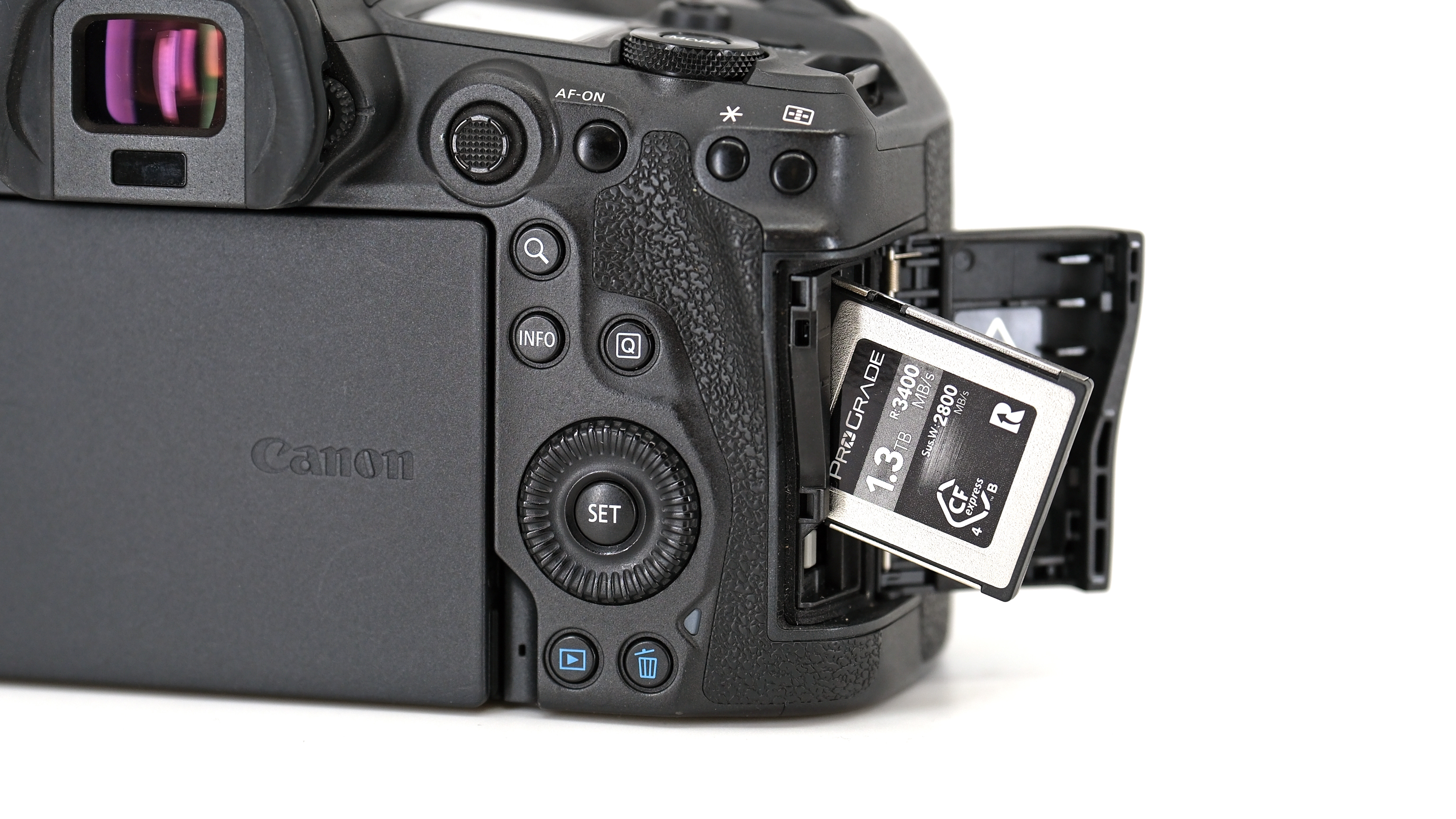
It seems like barely yesterday that CFexpress Type B usurped the XQD format and became the go-to memory card for anyone wanting ultra-fast transfer speeds that could keep up with the most technologically advanced mirrorless cameras. With speeds approaching 2000MB/s, there was (and frankly still isn't) a camera that can truly max out the best CFexpress cards of the current generation.
And yet we're now seeing next-generation Type B cards like the ProGrade Digital CFexpress Type B 4.0 Memory Card (Cobalt) that are built around the new PCI-E gen 4 interface. This enables transfer speeds twice as fast as previous Type B cards were capable of. Do we need such speeds right now? No. Is it nice to know your memory card is, at least for the foreseeable future, totally futureproofed? Absolutely. Providing you can ignore the price you'll pay for such peace of mind.

Key features
With headline specs of 3400MB/s max read and 3000MB/s max write speeds, the ProGrade Digital CFexpress Type B 4.0 Memory Card (Cobalt) is one of the fastest Type B cards money can buy. At the time of writing only OWC produces a Type B card with a faster read speed. But where the ProGrade card (currently) can't be beaten is its hugely impressive 2800MB/s minimum sustained write speed, which is more important in real-world use than peak read/write speeds.
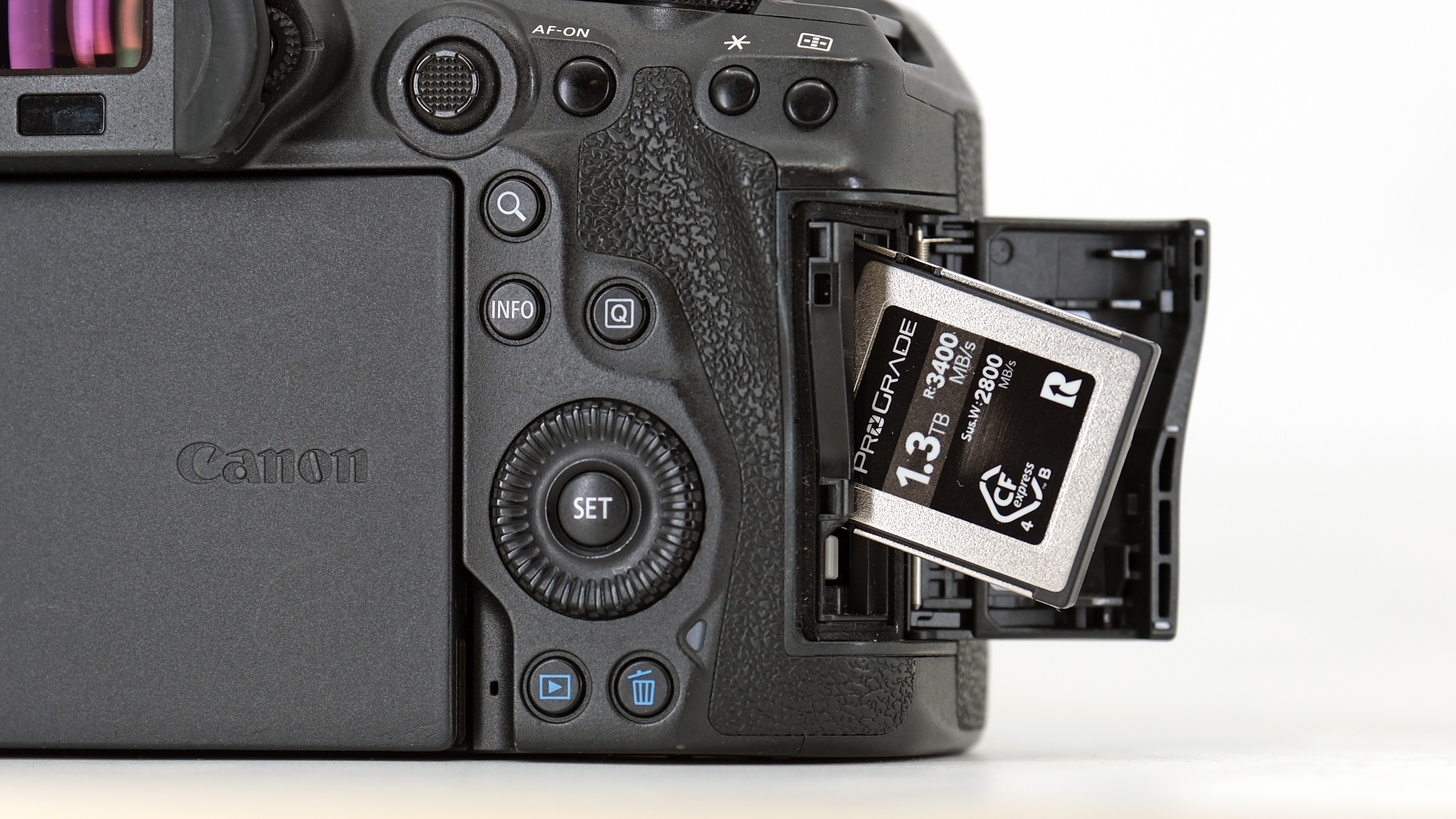
ProGrade has tested this Type B card in all current, commonly available Type B-compatible cameras to ensure flawless card performance. It's rated to operate in a -10°C to 70°C temperature range and is backed by a 3-year warranty.
At present this Cobalt edition is only available in a 1.3TB capacity, though ProGrade does offer it in a twin-pack bundle for a 10% discount. If you need a different capacity, then ProGrade also makes a Gold series of Type B 4.0 cards with the same max read & write speeds as this Cobalt card, just with a lower 2400MB/s minimum sustained write speed. Gold-series Type B 4.0 cards can be had in 512GB, 1TB and 2TB capacities.
Build and handling
It's a CFexpress Type B card. Aside from the graphics on the sticker, it looks like any other Type B card, and handles like one. The clever stuff is on the inside...
Testing methodology
Testing a memory card of this calibre is trickier than you might imagine. For reasons I'll detail in the Performance section below, in-camera testing won't even get close to pushing the speed limit of a card this fast, leaving us to rely on storage benchmark software like Crystal Disk Mark to validate ProGrade's headline speed specs.
This, however, requires a CFexpress Type B card reader which won't bottleneck the card being tested. But the problem is the vast majority of Type B readers out there haven't got a hope of maxing out even a conventional (~1900MB/s) Type B card, let alone this Cobalt powerhouse. This is due to the USB 3.2 Gen 2 interface employed by nearly all Type B card readers, which has a real-world transfer speed limit of around 850MB/s.
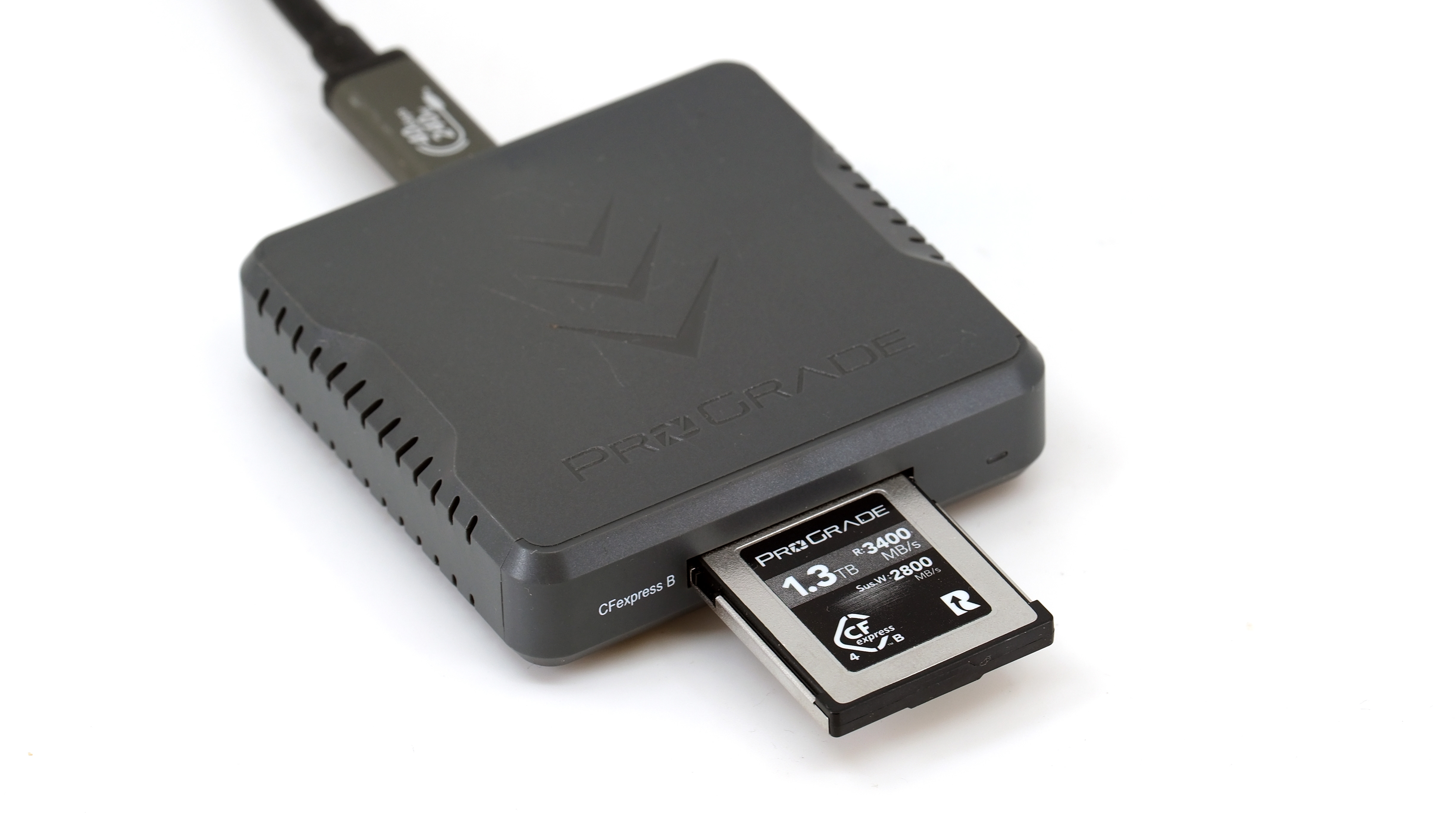
Thankfully ProGrade is one of seemingly few card manufacturers who actually realises this fundamental issue, so they also sent us their PG05.6 USB 4.0 Type B card reader - currently the only USB4 Type B card reader on the market, and rated for transfer speeds of up to 5000MB/s. ProGrade supplies a USB4-compatible Type-C cable with the reader, which is important as you can't just connect any old Type C cable and expect to get full USB4 transfer speeds.
Now all that's needed is a suitable test computer. This has to have both a USB4 connection, and an internal m.2 SSD that can exceed 3400MB/s, so as not to bottleneck the memory card. We chose the HP ZBook Studio G9 laptop, as it fulfils both these requirements.
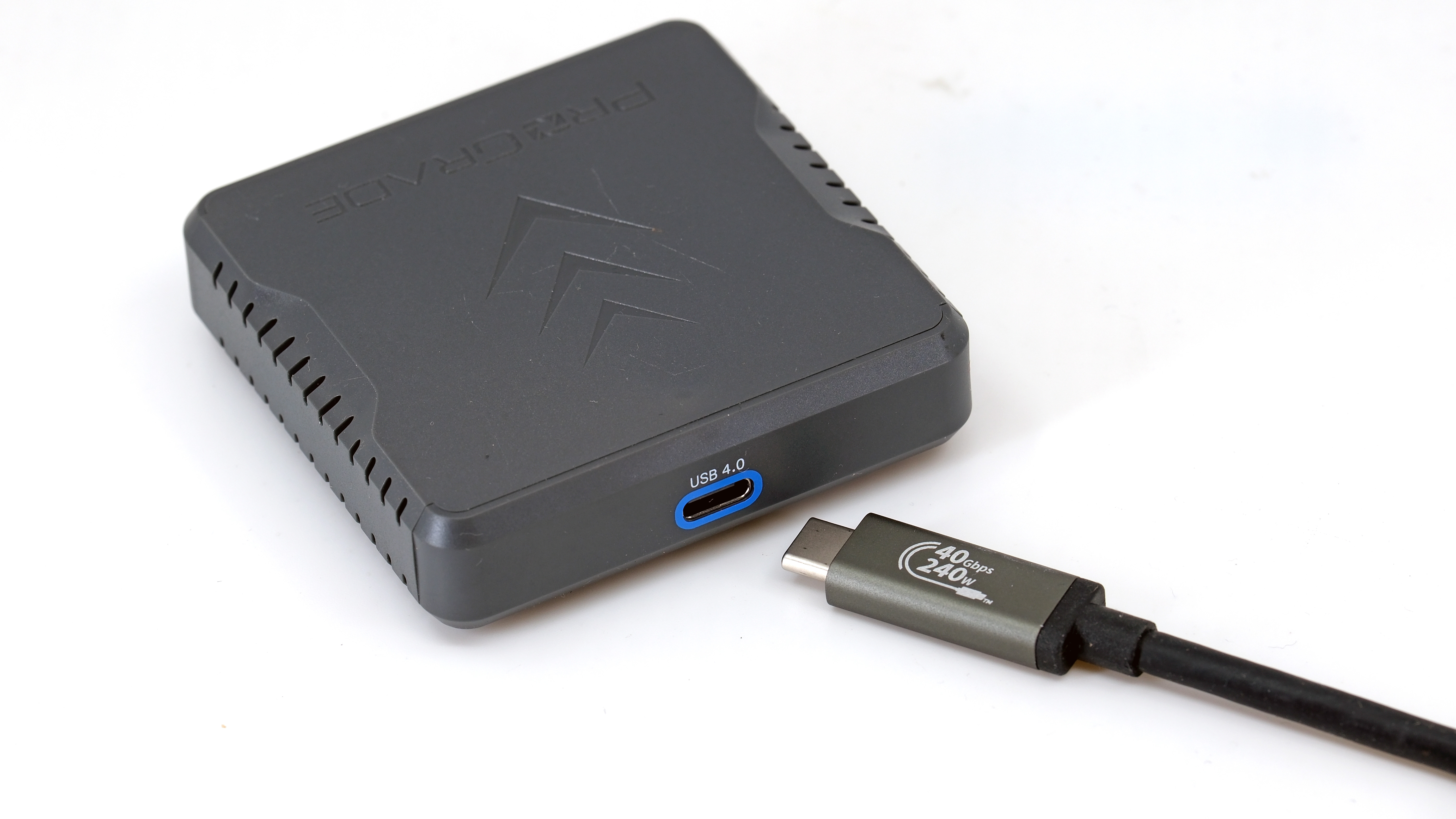
Performance
I plugged the ProGrade Digital CFexpress Type B 4.0 Memory Card (Cobalt) into a Canon EOS R5 to see if even this 8K-recording goliath could make the Cobalt card break a sweat. But even recording 8K video at its highest RAW quality was no issue. This shouldn't really come as a shock though. Canon rates the bit rate at this maximum resolution/quality setting at 2600Mbps, but remember, that's Megabits, not Megabytes. Convert that 2600Mbps figure to the same Megabytes terminology that memory cards are rated in and, even at this incredible high-resolution, high-quality capture setting, the R5 still only requires a memory card that can sustain over 325MB/s. If the EOS R5 was capable of recording video at a sustained 2800MB/s, then this 1.3TB memory card would only have enough capacity for around 8 minutes of footage.
The core issue here is simple: CFexpress card technology is currently at a point that far exceeds what today's cameras actually need in terms of memory performance. This is simply speed for the sake of it, not for real-world recording utility.
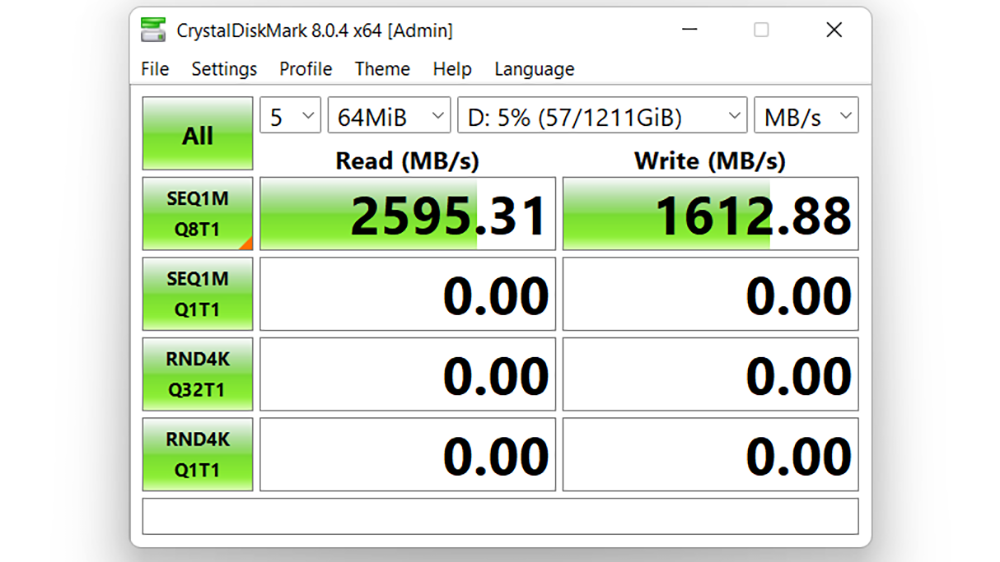
"Fine, but at least I can offload my footage to my computer at over 3000MB/s, right?" Theoretically yes, but not necessarily in practice. Even with ProGrade's PG05.6 USB 4.0 Type B card reader connected to our USB4 laptop, we couldn't max out the read speed of this card, despite the reader being advertised as capable of up to 5000MB/s transfer speeds. Our best results were 2595MB/s read, and 1613MB/s write. This isn't necessarily surprising though, as the USB4 standard is a bit of a mess, and some USB4 laptops are likely to perform better than others for a variety of controller/chipset reasons. Consequently your mileage can, and probably will, vary when it comes to computer transfer speeds.
Don't interpret this as a failure of the ProGrade Cobalt card though. The speed figures we recorded here are still, by far and away, the fastest memory card read and write speeds we've ever achieved at Digital Camera World. They make even the fastest UHS-II SD cards look pedestrian by comparison, and even a conventional CFexpress Type B card is way off the pace this Cobalt card. If you need to regularly offload hundreds of gigabytes of video footage on a daily basis, then the time savings could possibly justify the high purchase price of this card. But of course this will require you to already have a suitably fast card reader and computer.
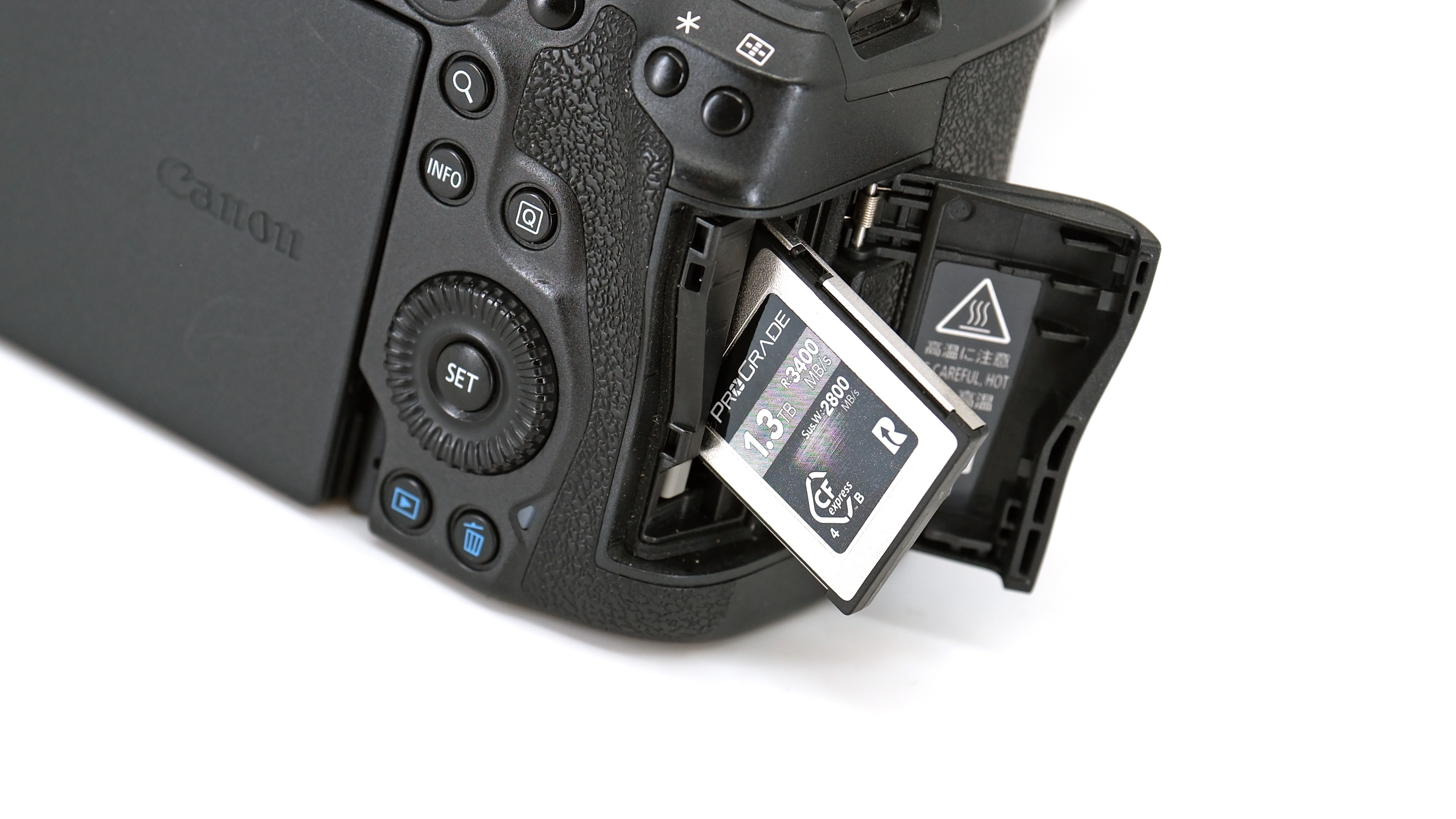
Verdict
What we have here is quite simply the best memory card money can buy right now, if sheer performance is your main objective. A 2800MB/s minimum write speed will shrug off even high bit rate 8K recording, let alone anything else you might want to shoot/record. Sure, there's only this 1.3TB capacity option available, but this strikes a good balance between having reasonable storage space, without making the already high price even more ludicrous.
But should you actually buy this card? Probably not. In nearly every possible use case, a conventional CFexpress (2.0) card is more than fast enough, and if you simply must have a next-gen (4.0) card, then the ProGrade's Gold-series offerings are far cheaper, for only marginally less performance than this Cobalt card.
As I've detailed above, no current camera actually needs a card even close to this fast, so really this Cobalt card exists more as a technical demonstration of what is possible from a memory card. For this alone we applaud what ProGrade has achieved here. But unless you simply must have a card that is futureproofed to the n'th degree, then it simply doesn't make financial sense to splash this much cash on a card which is so far beyond what your camera actually requires.







